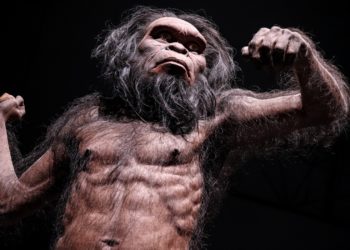Must any pair of would-be great men of history always find a path to conflict? Ask Caesar and Pompey, Octavian and Antony, Lennon and McCartney. But the specific thing they fight about is less predictable. I would not have guessed, six months ago, that Elon Musk and Donald Trump’s version of the Battle of Actium would be fought over the budget deficit.
That’s because six months ago I understood Musk’s interest in politics, his long march away from Obama-era liberalism and his reinvention of himself as the prince of the very online right, as reflecting two key goals: his newfound desire to defeat cultural progressivism, rooted in the experience of his child’s gender transition, and his long-term, career-shaping desire to get human explorers to Mars.
These interests reinforced each other. Musk was already moving rightward on cultural issues when his purchase of Twitter, a particular Rubicon, led him to shed the leftward political alliances that once yielded Democratic patronage and support. This strengthened his financial incentives to go all in for Trump and the Republicans, because it was clear that a Kamala Harris administration would be unremittingly hostile to his technological projects. He had already been willing to make all kinds of wild business gambles for those projects, the dream of Mars-bound rockets above all, so placing a stark political bet was second nature.
Given that reading of his intentions, I assumed that Musk’s role in a second Trump administration would be some combination of first technologist, deregulator in chief and anti-woke crusader — a space and tech focus with a side of culture war.
But that isn’t what happened. We did get the third role to some extent in some of the ideological justifications for the DOGE campaign against U.S.A.I.D., but Musk wasn’t really the point man for the White House’s anti-woke battles.
Nor did Musk assume a leading role in the administration’s deregulatory efforts. That seemed to be part of the initial plan for DOGE, but it went into abeyance when Musk forced out Vivek Ramaswamy.
Instead, the Tesla tycoon cast his great project as a budget-cutting effort, draped in the kind of apocalyptic rhetoric about immediate fiscal crises that went out of style on the right when Trump came down the escalator in 2015.
The extremity of this rhetoric, paired with the obvious difficulty of achieving trillions of dollars of savings through head-count reductions at federal agencies, led many people to assume that it was all a smoke screen — that DOGE was just a mechanism to help Trump’s inner circle understand how to take full control of the executive branch.
Certainly, there are people in the White House who appreciate how DOGE helped them see inside the administrative state. But in terms of what Musk himself thought he was doing, I mostly take him at his word: He seemed to have bought into a vision of his role in Washington as a one-man version of the Simpson-Bowles commission but with a mind-set and energy that would enable him to succeed where prior deficit hawks had failed.
But I’m very curious as to why he embraced that specific role. Anti-deficit mania was not a big part of the edgelord identity that Musk adopted on social media; on the New Right, deficit issues were seen as fusty, old-guard, Paul Ryanist.
Was it just a natural C.E.O.’s reaction to being handed power in D.C. — that the first thing you do after a takeover is try to fix the cash flow? To the extent that drug use reportedly played a role, is there something about ketamine that makes federal budgeting seem unusually alluring? Or did someone convince him that fiscal improvidence was the major impediment to humans becoming a multiplanetary species, the great filter that would prevent our escape into the stars?
If so, that someone did us all a disservice. It’s not that the deficit is unimportant. But it’s a place where Musk has no special competency, and a Silicon Valley tool kit honed in private industry doesn’t translate especially well to the political challenge of taming entitlement spending.
Clearly, Musk didn’t stop caring about the space program: The Trump White House decision (itself a bit of a mystery) to withdraw the nomination of his choice to head NASA seems to have helped tip him over into full opposition to its tax legislation.
But in the rhetorical war that he’s waging (for now, pending a temporary truce) against his former presidential BFF, Musk is not playing the disappointed futurist, the dynamist let down by populist blunders. He’s playing the deficit scold, a position historically occupied by dorks and killjoys. (I’ve been one of them at times, trust me.) It’s a poor platform from which to relaunch his interplanetary ambitions.
“Trump has 3.5 years left as President, but I will be around for 40+ years,” Musk predicted as the feud got hot. My own prediction is that the productivity of those four decades will be amplified if he realizes that fixing the federal deficit is one ambitious project that should be left to someone else.
The Times is committed to publishing a diversity of letters to the editor. We’d like to hear what you think about this or any of our articles. Here are some tips. And here’s our email: [email protected].
Follow the New York Times Opinion section on Facebook, Instagram, TikTok, Bluesky, WhatsApp and Threads.
Ross Douthat has been an Opinion columnist for The Times since 2009. He is also the host of the Opinion podcast “Interesting Times.” He is the author, most recently, of “Believe: Why Everyone Should Be Religious.” @DouthatNYT • Facebook
The post The Biggest Mystery of Elon Musk appeared first on New York Times.




